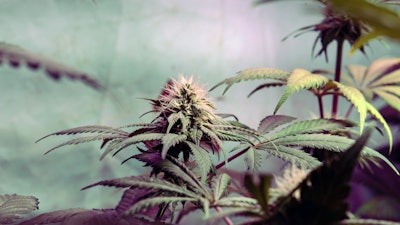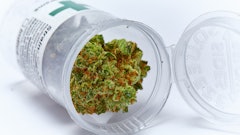
Three Arkansas residents have brought a federal racketeering lawsuit against four licensed medical cannabis companies operating in the state. The allegation: Those companies conspired to inflate THC levels on the labels of products sold to patients.
The companies in question are Bold, Osage Cultivation, Natural State Medicinal and, primarily, Steep Hill Arkansas (and its parent company Steep Hill Inc.).
The plaintiffs—Don Plumlee, Jakie Hanan and Pete Edwards—noticed over time “that some marijuana was more potent than others, despite being labeled as having similar amounts of THC,” according to the lawsuit, which was first reported by Law360. The lawsuit goes on to state that those plaintiffs independently tested product purchased at licensed dispensaries and found that THC levels were inflated by an average of 25%.
Read the full complaint below.
The RICO elements of this lawsuit come into play when the plaintiffs allege that the growers worked in concert with Steep Hill Arkansas to generate labels with higher THC results.
“Defendants used the telephone, email, or other communication facilities to take steps in furtherance of their efforts to unlawfully sell marijuana that had been mislabeled hundreds of times,” the lawsuit alleges. “The RICO defendants together formed an open ended association-in-fact enterprise for the purpose of cultivating marijuana in Arkansas and selling it to dispensaries in Arkansas for purchase by the plaintiff. To that end, they pooled their resources, knowledge, skills, and labor to achieve through the enterprise efficiencies in the cultivation and distribution of marijuana that none of them could have achieved individually.”
Implicit in this lawsuit is the matter of THC levels driving sales in most, if not all, cannabis markets. The plaintiffs lay out a simple syllogism: If higher THC levels equate to higher sales, then a concerted effort to mark up those THC levels on certificates of analysis will lead to consistently higher sales.
The plaintiffs also spent time constructing an argument that all of this activity in the state’s medical cannabis market is in violation of the Controlled Substances Act (e.g., “The large-scale manufacture and distribution of marijuana is a serious felony under the CSA,” according to the plaintiffs).
Plumlee et al. v. Steep Hill Inc. et al. by sandydocs on Scribd

























